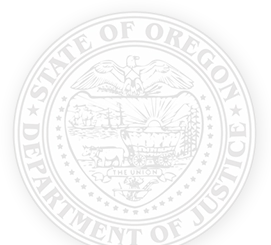Oregon Attorney General Ellen Rosenblum today filed a lawsuit against Monsanto for the harm that chemicals it manufactured have caused over decades to Oregon’s land, waters, fish and wildlife. The lawsuit seeks over $100 million for the damages and clean-up costs associated with polychlorinated biphenyls (PCBs). The full complaint can be found here.
Rosenblum’s lawsuit, filed in Multnomah County Circuit Court, alleges that Monsanto knew as early as 1937 that PCBs were toxic to fish, wildlife and other living species. At the time, PCBs were used in many compounds because they are highly durable and do not naturally break down. PCBs were eventually banned in the United States in 1977, but today they continue to pollute public lands and waterways, including the Portland Harbor, as well as fish and wildlife throughout the state.
“Monsanto knew decades before PCBs were banned that they were toxic to the environment, but they failed to disclose highly pertinent information,” said Attorney General Rosenblum. “And, now, Oregon is paying a big price as PCBs are being dredged up in river sediments and measured in the tissues of fish and wildlife throughout the state. PCBs are extremely hard to get rid of—and it will take significant time and resources to fully clean them up. It only makes sense that the manufacturer of these PCBs, Monsanto, help clean up this mess with dollars!”
PCBs are colorless or light yellow crystalline compounds that were put in coolants and other electrical equipment because they were fire-retardant. For example, they were used in fluorescent lighting fixtures, electrical devices and hydraulic oils. They were also used in products such as paint, caulking and carbonless copy paper.
According to the Centers for Disease Control and Prevention (CDC), PCBs are known to cause cancer in animals and the Environmental Protection Agency (EPA) has concluded that they are probable human carcinogens. According to the Agency for Toxic Substances & Disease Registry, PCB exposure can cause serious liver damage, depressed immune system function, skin conditions such as acne and rashes, significant irritation of and harm to the nose and lungs, gastrointestinal discomfort, changes in the blood and liver, depression, fatigue, and learning capacity impairment.
PCBs are hard to remove from the environment, and they bioaccumulate in fish and wildlife, meaning that species higher up the food chain retain and accumulate PCBs from feeding on smaller species. They are not found naturally in the environment, so all PCB contamination is the result of the manufacturer—Monsanto.
As highlighted on page 3 and 29 of the complaint, in the face of its own internal research showing how harmful and persistent PCBs were, Monsanto’s internal talking point was that it could not “afford to lose one dollar of business,” and it continued to manufacture, market and sell more and more PCBs.
“Today as we grapple with the cost of cleaning up the lasting damage of PCBs in our waterways, fish and wildlife—we must ask ourselves: Would Oregonians have used these products if Monsanto had been more forthcoming about the toxicity of PCBs? I believe the answer would be ‘no,'” said Attorney General Rosenblum.
Contact:
Kristina Edmunson, Department of Justice, Kristina.Edmunson@doj.oregon.gov, 503-378-6002
